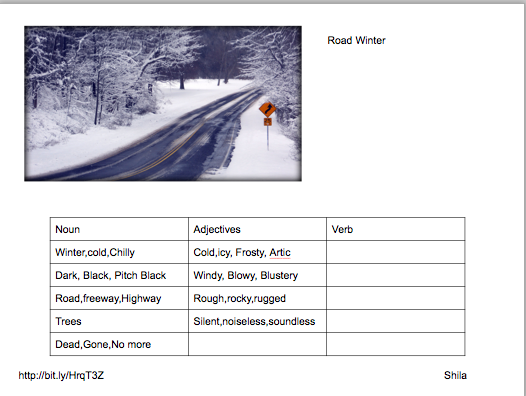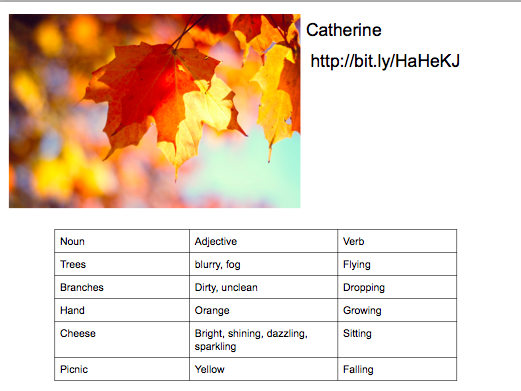I know Dean Shareski, in his post Let’s Stamp Out Busyness, declared a moratorium on claiming to be busy, but I have to break it for the purpose of this post. Man, have I been busy! New year, new school, new country and we are out of the gates strong. Teaching more classes, more kids; it just feels like more, more and more.
A little taste, 8:00 am= Extended mentor time, four classes in a row, lunch, no prep periods, followed by a English department meeting, (it is now 4:30pm), meeting with Keri Lee Beasely about side ADE project, capping it off with Pad Thai with KL, home around 7:30. Put kids to bed and now here I am. Exhausted. Feel sorry for me.
But….. as I was making lunch for Kaia, I couldn’t help thinking:
And…..what do I choose to do in this state of exhaustion? You guessed it, I blog. I need to write. Not necessarily because I feel I have anything life changing to share. Not because I am trying to gain sympathy or gain attention for being busy, no…I write because this is how I make sense of my life. This is how I calm down and sort and reflect. Writing for me is a soothing verb. A clarifying one. When life becomes too much, I need to bring order through text and words and sentences and paragraphs, no matter how misdirected or jumbled they may appear, it is in text that I find comfort.
 cc licensed ( BY NC ) flickr photo shared by stupidmommy
cc licensed ( BY NC ) flickr photo shared by stupidmommy
As an English teacher, I instill the therapeutic value of writing, for my students. I sell the verb, because I find value in the act of writing. Perhaps, I am naive or close-minded, or delusional, but I think adults, teachers especially should also value writing. It always ruffles my feathers when people say they haven’t time to write or read or reflect or create. Why is it okay to admit we don’t have time to do the very things we tell students are so important in their lives. If we value literacy, than shouldn’t we need to participate in it, with it. Right?
Okay, stepping off soapbox…
As I write, the little voice is criticizing everything I say. What about numeracy? We value that too, but I don’t see you working out equations or experiencing your right brain. We value athletics, why don’t you go for a run or a swim? Perhaps, I have been biased for gravitating toward writing because it comes easy for me. Perhaps it is my comfort tool, but causes anxiety and dread in others, just like running or math does for me.
Whatever our release, shouldn’t we share these acts with our students? Let them know that what we teach is what we value and what we do and that is why they should give it a try.
Sorry, maybe this post was just a ramble. It helped me rest and calm my brain, I hope it helps you in some way. If you have made it this far, here some questions to chew on:
What is your release? What helps you come down (calm down) from the crazy, but keeps you connected with the pedagogical ideas and practices you value? What do you do each day despite being exhausted that keeps you fresh and learning? How and who do you share with?





